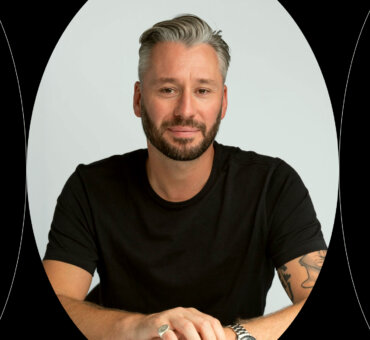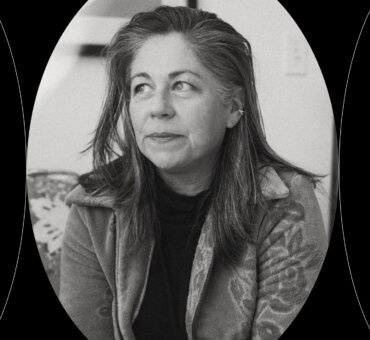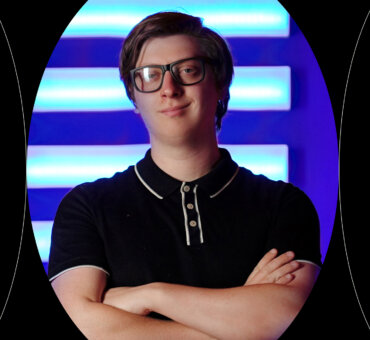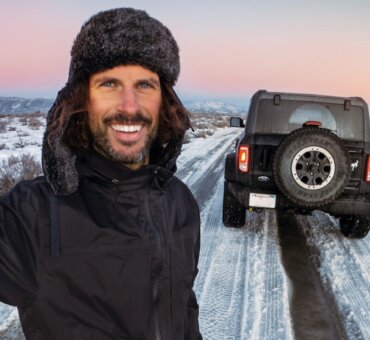Anyone who edits interviews knows how much gets cut. Most of our Musicbed interviews start at around 10,000 words and end up around 2,000. We throw a lot away — usually just because a question or an answer doesn’t fit with the overarching theme.
Here are a few things we deleted in 2015 that we believe deserve to see the light of day. Whether it’s an interesting anecdote, a bit of wisdom or just a glimpse into the mind of a creative — there’s some good stuff in here. Enjoy.

BRANDON LI
We ended up on this great tangent in Brandon Li’s interview, talking about his work on MTV’s reality show True Life. We included some of it in our original article, but here’s a great story about his experience, including his detailed instructions on turning yourself into an undercover, two-camera bionic machine.
Brandon: I usually ended up with about 70 to 100 hours of raw footage per episode, and I cut that down to 42 minutes.
Did you ever get into a situation where you had no clue how you were going to put something together from all that footage?
I had a lot of situations where I had no clue what I was going to put together. I was filming this single mom for a while… How do I do this without defaming her too much? Basically, I thought she was on a search for love, and she was looking for something else, just drinking all the time and not being a great mom. Eventually she got sick of the camera and started playing these games with me. She would send me to the wrong address and then refuse to answer her phone when I showed up in the middle of nowhere. I ended up having to take a one-month break and basically begged her to continue doing the show because I had only half the footage I needed. I’d say for about 30 percent of the people I filmed, I’d throw away the footage because either they decided they didn’t want to do the show, or literally nothing happened while I was filming.

And his instructions for shooting with two cameras at once:
BL: When I was filming True Life, I got really frustrated shooting with one camera. I could never properly capture a conversation. So I got two RX100s. You know, those Sony point-and-shoot cameras? They actually shoot great video. So I taught myself to shoot with two cameras at once. I filmed an entire episode that way.
I’d use mophies — those little battery packs you can power your phone with — to keep the cameras running. I took iPod armbands for runners and put a mophie in each one. Then I ran a micro USB cable from the armband to the camera. I wore long sleeve shirts so I didn’t look like a bionic freak; and I hid the cameras up my sleeves when I wasn’t shooting, so I could walk around normally. As long as I didn’t raise my arms, nobody would know. I could be incognito. A lot of the motivation for this was so I could have a beer and nobody would wonder why the camera guy was drinking. But I also didn’t want people to constantly be looking at the camera and feeling self-conscious.
Oh, and I used pocket voice recorders with lav mics. I gave those to the talent and let them run for hours. Generally, I walked around with no external gear. I was free. I could just hang out, be a regular guy, and then when the drama started to happen, 10 seconds later I could be shooting. It happened so quickly, the subjects didn’t have time to register that a camera was on until it was too late.
Read our full conversation with Brandon Li here.
“I was always somebody who needed to fall on my face to learn a lesson.”
ADRIENNE WEISS
Adrienne Weiss had so many great things to say about directing, we just couldn’t fit it all in. Here’s what she had to say when we asked what kind of person makes a good director.
Adrienne: If you’re asking me what are the essential qualities of a director, I believe it’s someone who has a real vision — for the material, for the world they want to represent on screen, and for the tone of the piece as a whole. One of the things it takes to make it as a director is the willingness to continue striving for excellence. It’s so hard to make a great film. There are so many different steps you have to go through, and each of those steps has to be done incredibly well. Some of it comes down to good fortune, but really the people who manage to achieve something significant as a filmmaker are the people who are willing to keep questing. They’re not complacent about what they do. They’re constantly trying to improve it, improve it, improve it. Make it better. That’s really one of the key things that makes a successful filmmaker in this world of ours: the ability to stick to it. Because what it takes to make a movie is absolutely astonishing. Even a short film. Directors need to have the drive to keep going and keep perfecting and keep learning. All the people I admire are those kinds of people.
Read our full conversation with Adrienne Weiss here.

SEA CHANT
Andrew and Carissa Gallo are not only the hyper-talented creative duo known as Sea Chant, but they’re also husband and wife. We were curious to know how their relationship plays into their work. It’s a great insight into how love and creativity can go hand in hand.
How did you guys start working together?
Carissa: We were both immersed in music growing up. We met in high school, so it wasn’t really a career or anything. I was mostly interested in photography, and Andrew was mostly interested in film. We didn’t start working together until maybe three years later when we started dating. Then we were making things together all the time. We’ve always had so much fun making stuff together.
Was there a romantic element to your creativity early on?
Andrew: Yeah. We were connecting in a deeper way than we could any other way. The two were very connected.

Are they still? Is there still a romantic element to your work?
CG: I definitely think our romance influences our work. Our personal work, I mean. Pursuing passion projects and making art together are some of our most fun times. That and being with our kids. It’s still so much fun making things together.
AG: We were doing a music video recently, and there was something very romantic about it to me. A lot of the footage was shot in our hometown. It had probably been 10 years since we’d been in those places together as kids. Now 10 years later, we have a family of our own, we have a studio of our own. The whole thing felt very much connected to our life and our love.
Read our full conversation with Sea Chant here.
RYAN KOO
Here’s Ryan Koo going a little more in-depth about his college experience and why he started No Film School.
As the founder of No Film School, what has your education been?
Ryan: I went to Middlebury College in Vermont and took film classes there. Obviously, as an undergrad you’re paying for a degree no matter what it’s in, so it wasn’t like I spent anything extra on my film classes. But you don’t have to be in a classroom very long to realize that different people have different learning styles. I was always somebody who needed to fall on my face to learn a lesson. No one could tell me, “Hey, don’t do that.” I had to stick my hand in the socket to realize, “Oh, there’s electricity. I shouldn’t do that.” For me, I needed to get out in the real world and fall on my face.
I also saw that filmmakers can be such a narrow subset of society. Racially, economically, gender-wise. It’s all a particular profile in the classroom, and I felt that if there were going to be any sort of force that could democratize film education, it would be a website where things were free and anyone could learn the craft of filmmaking. Hopefully it could contribute to a more diverse set of voices making films. And the truth is, learning the 180-degree rule is not something you need to spend $200,000 on. There are certainly advantages to going to film school in terms of your peer network and connections; but philosophically, I felt like there were things I wanted to try to change about the industry.
Read our full conversation with Ryan Koo here.
Directors need to have the drive to keep going and keep perfecting and keep learning. All the people I admire are those kinds of people.
TYLER GINTER
After Variable released their short documentary ‘Rocket Wars’, we called director Salomon Ligthelm and producter Tyler Ginter to learn more about the project. It turned out Tyler’s filmmaking background is fascinating. Here’s Tyler talking about his unusual path to Variable and what he’s learned about the essential role of the producer.
Tyler: I served in the U.S. Army for nine years, in a combat camera unit deployed around the world. I was in Iraq for a year doing operational and strategic combat missions with film crews. I had a great opportunity to lead a lot of soldiers. I had about 240 soldiers and a ton of film equipment and resources. That’s when I started to realize that my place in film is more in supporting and managing and leading, not so much in the hands-on or technical art form.
When I hit the ground in Iraq, I wanted to film every day; but that wasn’t my role as an officer. I needed to learn how to lead and support and make sure everyone was being taken care of. The team aspect of filmmaking became enjoyable in a different way than I’d originally thought. I found a lot of peace in it over time. That side of things becomes more enjoyable as you grow.
Read our full conversation with Variable here.





















































































